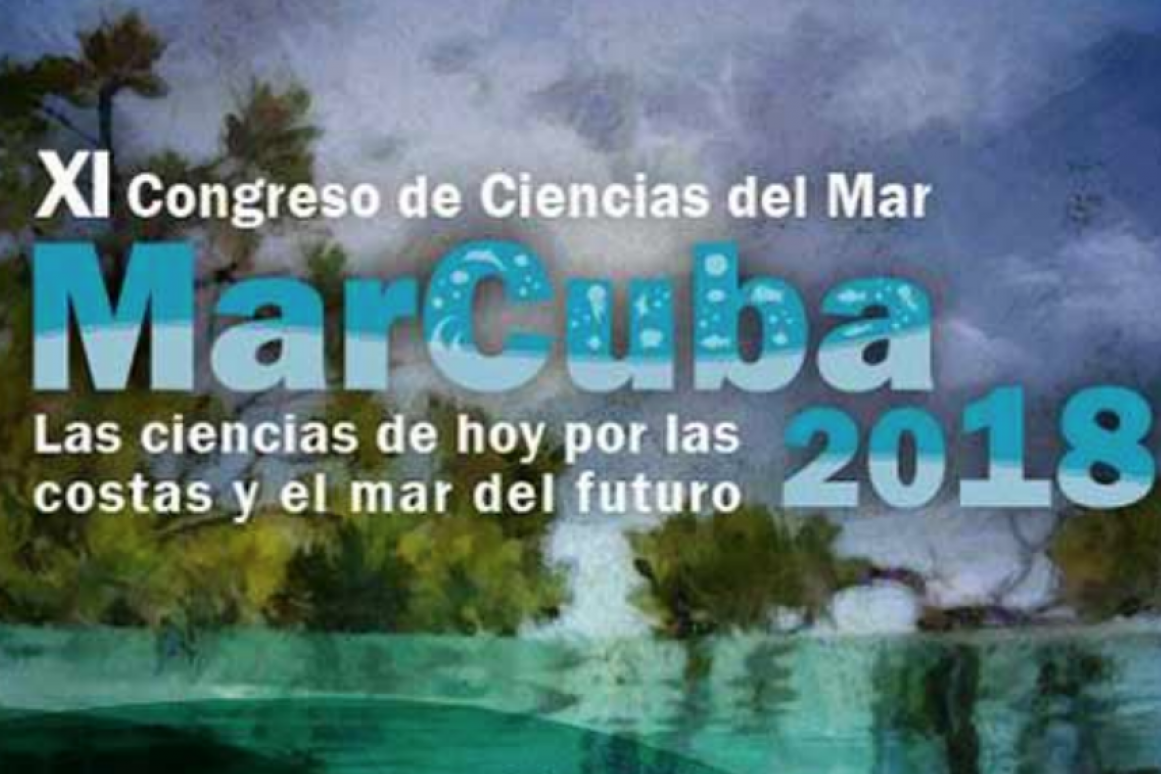HRI Coalition Attends 11th MarCuba, Cuba's Largest Marine Conference

CORPUS CHRISTI, Texas — The Harte Research Institute for Gulf of Mexico Studies (HRI) at Texas A&M University-Corpus Christi brought a coalition of more than 35 researchers, students and staff to participate in the 11th MarCuba meeting Oct. 15-19 in Havana, Cuba. MarCuba is Cuba’s largest scientific gathering of professionals in the marine science and policy, ocean observing and coastal and marine technology sectors.
HRI's mission includes securing international research partnerships in the Gulf of Mexico, which has been made difficult by political tensions that kept Cuba largely closed off to the U.S. until recently. HRI has been working with Cuban partners since the early 2000s on expanding marine and coastal research that can promote the sustainable management of natural resources in the Gulf of Mexico.
“One of our goals each year in participating is to continue to build this network of science between the three counties, making progress in working together despite politics,” said Dr. Larry McKinney, HRI’s Senior Executive Director. “Our vision at HRI is a sustainable Gulf of Mexico, and we can’t have that without the three countries — the U.S., Mexico, and Cuba — working together.”
This year, HRI had its first student presentation at MarCuba: HRI graduate student Kesley Gibson, a doctoral candidate under Dr. Greg Stunz in the Fisheries and Ocean Health Lab, presented on her dissertation work studying the migration patterns of Shortfin Mako sharks in the Gulf of Mexico. Gibson helps to conduct the HRI Center for Sportfish Science and Conservation’s shark tagging program, which outfits sharks with satellite, acoustic and passive tags to help monitor their movements throughout the Gulf.
Gibson said getting the word out about her research is especially important because Cuba is thought to be an important corridor for shark migration, and many species, including Makos, must pass through Cuban waters on their way to the Atlantic or Caribbean. In addition, Mako are heavily fished in Cuba — Shortfin Mako sharks are the fourth-most-landed fish species for market in Cuba.
“As little as we know about sharks, we know even less about sharks in Cuban waters,” said Gibson, adding that establishing research partnerships with local scientists who understand their waters and fisheries will be important to improving the science around shark migration.
Participants in HRI’s fifth Student Workshop on International Coastal and Marine Management (SWIMM) also presented. The student workshop brings 18 graduate students of diverse academic backgrounds from the U.S., Mexico and Cuba together for a week-long program to gain experience in international research collaboration. This year’s students traveled to the hurricane-devastated Caguanes National Park in northern central Cuba to begin the process of developing an Environmental Report Card park officials and local stakeholders could use to monitor the environmental health of the region over time. They shared their preliminary findings with meeting attendees and are continuing to develop the report card metrics.
Highlights of the meeting also included a memorial tribute to HRI co-founder and Chair for Biodiversity and Conversation Science Dr. Wes Tunnell, who passed away in July after a long battle with cancer. Tunnell, a marine biologist and ecologist whose work focused primarily on coastal and coral reef systems, had a long relationship with the Cuban marine science community through his work at HRI. Tunnell traveled regularly to Cuba to pursue collaborative research arrangements between Cuban researchers and HRI, and the institute invited Guillermo García Montero, former director of the National Aquarium of Cuba, to be a founding member of its Advisory Board. Tunnell had given keynote addresses at several past Marcuba gatherings.
At MarCuba 2018, to honor his legacy, HRI presented the completed product of one of Tunnell’s last projects: The first-ever Spanish translation of “The Scleractinians of Cuba” by Vassil N. Zlatarski and Nereida Martínez Estalella, a groundbreaking volume of research on Cuban corals that until now had never been translated into the nation’s native language. The translation was completed and printed with a grant from the Richard Lounsbery Foundation.
